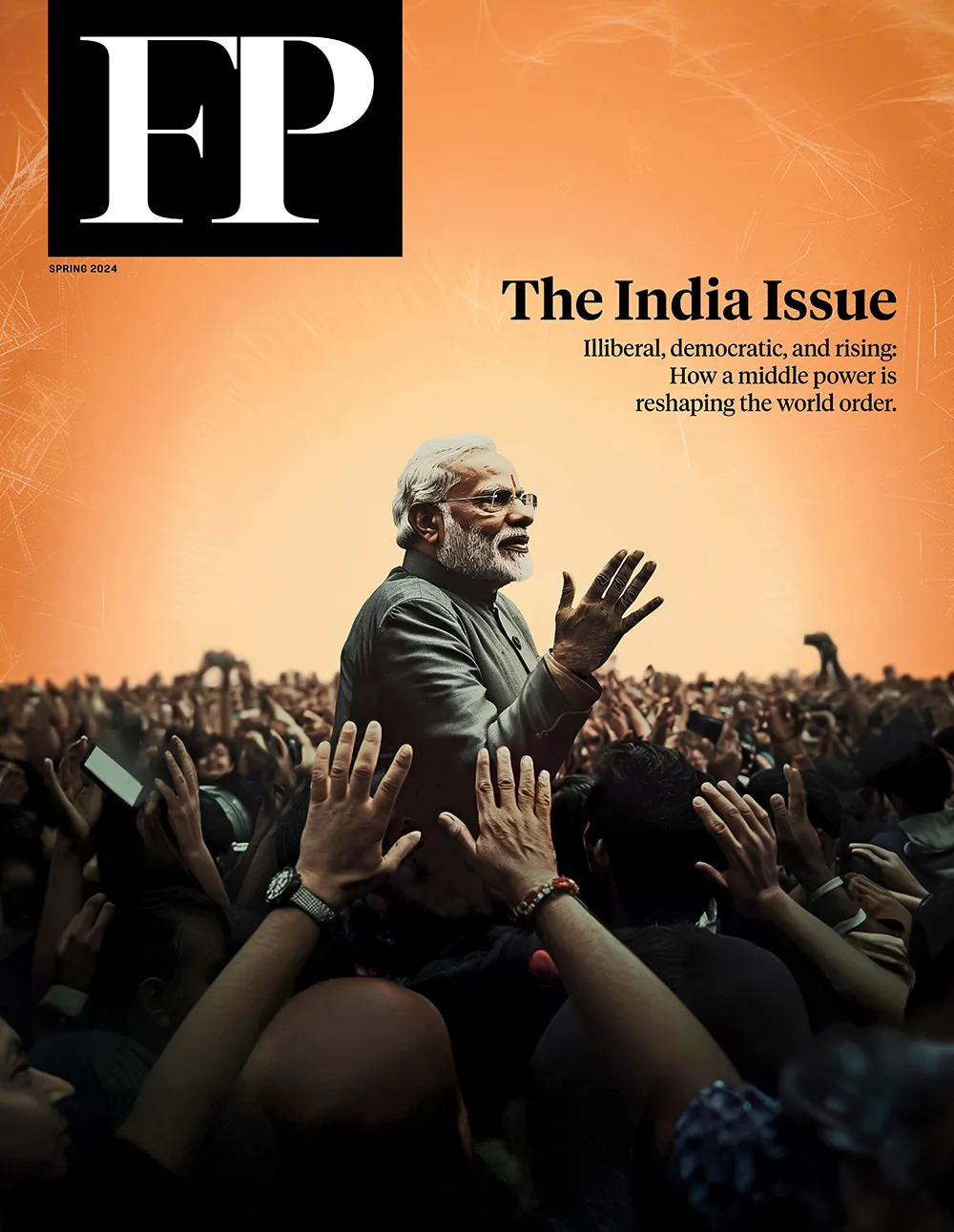If you want to understand how China abuses its power on the world stage, consider the lobsters. After the Australian prime minister called in April 2020 for an international investigation into the origins of the COVID-19 pandemic, the Chinese ambassador to Australia, Chen Jingye, ominously hinted at the economic backlash. “Maybe the ordinary [Chinese] people will say, ‘Why should we drink Australian wine? Eat Australian beef?’” he told the Australian Financial Review. It and other outraged statements from the Chinese government had all the subtlety of a mafia capo wandering into the neighborhood deli and saying, “Nice little business you got here—shame if anything happened to it.”
If you want to understand how China abuses its power on the world stage, consider the lobsters. After the Australian prime minister called in April 2020 for an international investigation into the origins of the COVID-19 pandemic, the Chinese ambassador to Australia, Chen Jingye, ominously hinted at the economic backlash. “Maybe the ordinary [Chinese] people will say, ‘Why should we drink Australian wine? Eat Australian beef?’” he told the Australian Financial Review. It and other outraged statements from the Chinese government had all the subtlety of a mafia capo wandering into the neighborhood deli and saying, “Nice little business you got here—shame if anything happened to it.”
This article is adapted from World on the Brink: How America Can Beat China in the Race for the Twenty-First Century, Dmitri Alperovitch with Garrett M. Graff, PublicAffairs, 400 pp., $25.49, April 2024
In the weeks and months that followed, China instituted onerous import inspections on Australian rock lobsters and instituted new bans on timber and barley shipments from Australia. Given that in 2018 and 2019, China had accounted for about 94 percent of the Australian rock lobster market, the new trade restrictions were clearly meant to devastate the country’s lobster industry.
China also invoked punishing tariffs on Australian wine—tariffs that in some cases reached 212 percent—and exports stopped almost overnight. One winemaker, Jaressa Estates in the South Australian wine growing region of McLaren Vale, had been selling about 7 million bottles a year to China, some 96 percent of its total business, and saw that number drop to zero. “The country’s biggest overseas market vanished almost immediately. Sales to China plummeted 97 percent that first year. Storage tanks overflowed with unsold vintages of shiraz and cabernet sauvignon, pressuring red grape prices,” the New York Times reported. “Now that its economy is entrenched as the world’s second largest, the threat of losing access to China’s 1.4 billion consumers is a stick that few countries or industries can afford to provoke.”
It was a brutal lesson for Australia. As one winemaker told CNN, perhaps Australia shouldn’t be so quick to cross China in the future—and it should have approached questions about COVID-19’s origins with more delicacy. “Australia’s only a little nation. We should have absolutely supported it, but we didn’t need to lead the charge,” the vintner said. All told, Australia saw some $13 billion worth of exports targeted.
Outside the egregious Australian case, China has begun to wield the economic stick more regularly. For example, it halted salmon imports from Norway after the Nobel Peace Prize went to Chinese dissident Lio Xiaobo, punished Taiwan in 2022 with new restrictions on exporting pineapples, apples, and fish, and went after Lithuania when the Baltic country tried to strengthen ties with Taiwan. The wide-ranging Chinese move against Lithuania was unprecedented—extending not to just to obvious products like milk or peat but also against products manufactured with semiconductor chips made in Lithuania. As the New York Times wrote at the time, “China’s drive to punish Lithuania is a new level of vindictiveness.” The consequences for Lithuania were so dire that the German-Baltic Chamber of Commerce reported that the country’s high-tech industry faced an “existential” threat.
- An Australian fisherman holds a live western rock lobster on Dec. 10, 2020. Fishermen would sell rock lobsters to customers directly in the harbor to try to replace lost business with China. Trevor Collens/AFP via Getty Images
- Farmers harvest pineapples in Pingtung County, Taiwan, amid a Chinese ban on pineapple imports, on March 16, 2021. Sam Yeh/AFP via Getty Images
The most powerful voices in the global trade discussion largely stayed silent during these attacks. The European Union filed a perfunctory World Trade Organization complaint on Lithuania’s behalf but, as the New York Times reported, “otherwise largely left one of its smallest and weakest members to fend for itself,” and behind the scenes its officials urged Vilnius officials to appease China. “To use a Chinese phrase, they are killing the chicken to scare the monkey, particularly the big German monkey,” one European think tank leader said publicly. “Many European leaders look at Lithuania and say, ‘My God, we are not going to do anything to upset China.’”
And while some U.S. officials held performative tastings of Australian wine, the United States failed to step in to stabilize or support Australia, Norway, Taiwan, or Lithuania. There were no high-profile “Berlin Airlifts” of pineapples to U.S. grocery stores, tanker convoys of Australian Shiraz rolling up the Capital Beltway, or “Buy Baltic” public service announcements to encourage consumers and corporate leaders to look to Lithuanian suppliers. There was no coordinated effort to build a coalition to implement an emergency adjustment of tariffs on Australian wine or lobster, let alone to help the affected industries find new commercial buyers.
Perhaps it’s easy to write off such American reluctance as our own strain of protectionism—maybe the government didn’t want to be accused of undercutting Hawaiian pineapples or promoting foreign competitors to California Zinfadels—but the truth is that even at home the United States has failed to stand up for our industries when China targeted them. We didn’t support American airlines and hospitality companies when China pressured them to remove Taiwan’s name from their maps; nor did the United States government stand up meaningfully for the free speech of NBA players who criticized China.
China is learning, again and again, that bullying works, mastering the 21st-century toolkit of economic statecraft and warfare. As Bethany Allen, a journalist who has covered China for a decade, writes in her book, Beijing Rules: How China Weaponized Its Economy to Confront the World, “If we speak the language of markets … then China hasn’t just learned that language. It has learned to speak it louder than anyone else.” The Chinese Communist Party’s “authoritarian style of state capitalism,” Allen argues, means it “is willing to draw on its full arsenal of leverage, influence, charm, deception, and coercion.” And China has begun to deploy those tools all too frequently—leading to very real questions about whether anyone, companies or nation-states, can afford to be economically reliant on China.
The United States needs to do better—for ourselves and our allies. Strong allies are not going to help only out of self-interest, they’re going to do it because they want to follow their values and principles—and we have to make it easier for countries who want to help us counter China. We need to create an umbrella that shields countries, companies, and individuals when they take on China’s attempts at hegemonic thought and action.
From left to right: U.S. President Joe Biden, German Chancellor Olaf Scholz, Spanish Prime Minister Pedro Sánchez, French President Emmanuel Macron, British Prime Minister Rishi Sunak, Spanish Foreign Minister José Manuel Albares Bueno, then-French Foreign Minister Catherine Colonna, Canadian Prime Minister Justin Trudeau, and U.S. Secretary of State Antony Blinken talk during the G-20 summit in Nusa Dua, Indonesia, in an image provided by the German Federal Press Office, on Nov. 16, 2022. Bundesregierung via Getty Images
Critical to any global strategy to counter China is building and securing the series of bilateral relationships and multilateral institutions and alliances that helped the West win Cold War I. We have to make it easy for our allies—and desired potential allies—to say yes to such alliances. China is surrounded by many relatively small and weak countries that need real reassurances, both security and economic, that if they side with the United States in a regional coalition they won’t be out in the cold.
Even countries like South Korea, Japan, and Australia that are G-20 countries with advanced economies and trillion-dollar-plus GDPs are small compared to the behemoths like China and the United States, especially if they’re left geopolitically isolated.
Beyond ad hoc responses to pressure on our friends when they stand up to China—especially but not only when they’re acting at our request—the United States needs to figure out a new alliance framework to deter such actions from China in the future. China needs to know that bullying won’t work.
On the security front, there’s little value in the Indo-Pacific in a replacement for SEATO, the 20-year attempt to build a Southeast Asia alliance like NATO that ended in 1977 after never achieving a working military structure. (One British diplomat called the alliance a “zoo of paper tigers.”) Today, too many of the countries across the Indo-Pacific are already protected by bilateral security pacts with the United States to bother joining a larger formal security alliance. For example, given that both Japan and the Philippines have their own security pacts with the United States, it’s not entirely clear what domestic political appetite there would be for, say, the Philippines to be treaty-bound to defend Japan if it’s attacked.
Instead of a military security alliance in the Indo-Pacific, we should be looking to build a new—and global—economic security alliance. America should lead the way in creating a new organization—call it something like the Treaty of Allied Market Economies (TAME), an “economic NATO” alliance of European and Indo-Pacific nations with open-market economies. Together, the partners in this alliance would respond as a unified block to political and economic pressure from China—or any other economic aggressor, for that matter—through a combination of trade barriers, sanctions, and export controls.
In some ways, this alliance would look similar to the coordinated but independent action that the West took in levying unprecedented sanctions against Russia after its Ukraine invasion. As an additional carrot to joining such an alliance, like-minded members could all share increased trade benefits in the form of tariff cuts, regulatory cooperation, and enhanced investment terms.
Imported coal is unloaded from a ship at a port in Rugao, China, on Nov. 16, 2023.STR/AFP via Getty Images
Beyond formal joint economic punishment of an aggressor, such an alliance could also plan for and commit to repairing and replacing real economic harms that member countries face when hit with retaliatory tariffs or trade wars. Such “trade diversion” often occurs in the market anyway. As one market closes, another opens—and we know that, in part, because of China’s actions against Australia. Markets are adaptable and most goods can flow elsewhere, especially if protectionist tariffs don’t stand in the way. It’s why Australia, for instance, weathered some of China’s aggressive moves better than anticipated. In particular, the Australian coal industry—which was also hit with punishing bans—turned out just fine because coal is such a fungible and high-demand product. “Once China banned imports of Australian coal in mid-2020, Chinese utilities had to turn to Russian and Indonesian suppliers instead. This, in turn, took Russian and Indonesian coal off the market, creating demand gaps in India, Japan, and South Korea—which Australia’s stranded coal was able to fill,” Foreign Policy noted. “The result of decoupling for one of Australia’s core industries was therefore just a game of musical chairs—a rearrangement of who traded with whom, not a material injury.”
One of the reasons that NATO has never had to invoke Article 5 against another nation-state attack—the only time it’s ever been used was after Sept. 11 against al Qaeda—is precisely because of how strong all other countries know the response from the combined NATO force would be.
The same should be true on the economic front. As Daleep Singh, a National Security Council official who helped coordinate the U.S. response to Ukraine, said, “The best sanctions are the ones that never have to get used.” China might very well think twice before weaponizing its trading strength if it understood the combined—and severe—penalties it might face in taking such action and that even if it did launch a trade war, it wouldn’t necessarily inflict much economic harm to begin with.
There’s enough evidence of China’s willingness to inflict economic pain for political gain across Asia and Europe that a well-crafted TAME organization would likely attract a long line of participants—many countries across the globe are becoming increasingly concerned about Chinese belligerent behavior, and there is safety in numbers. While it is unlikely that some large countries with significant economic dependence on China, such as France and Germany, would rush to join this new alliance, states that have already found themselves on the receiving end of Chinese coercion in the past—such as Australia, Norway, Sweden, Japan, the Czech Republic, Lithuania, the Philippines, and Taiwan itself, among others—are prime candidates for initial membership. Over time, as TAME membership grows in numbers, combined economic power, and market size, it will become a magnet too attractive for other market economies to avoid, especially if China continues to engage in brutish bullying tactics around the world.
Dmitri Alperovitch is a Russia expert and a co-founder and chairman of Silverado Policy Accelerator, a Washington, D.C.-based geopolitics think tank.
More from Foreign Policy

Morality Is the Enemy of Peace
The conflicts in Gaza and Ukraine can only end with deals that don’t satisfy anyone completely.

Why Biden’s Gaza Gambit Is Likely to Fail
The U.S. president wants a truce more than Israel and Hamas do.

Modi’s Taiwan Ties Have Rattled China
India’s overtures to the island have coincided with a breakdown in its relationship with Beijing.

Don’t Bet Against the Dollar
U.S. competitors are pushing the limits of autonomy within a dollar-based system, but there isn’t a real global alternative—and the world is far from an inflection point.











Join the Conversation
Commenting on this and other recent articles is just one benefit of a Foreign Policy subscription.
Already a subscriber? .
Subscribe Subscribe
View Comments
Join the Conversation
Join the conversation on this and other recent Foreign Policy articles when you subscribe now.
Subscribe Subscribe
Not your account?
View Comments
Join the Conversation
Please follow our comment guidelines, stay on topic, and be civil, courteous, and respectful of others’ beliefs.